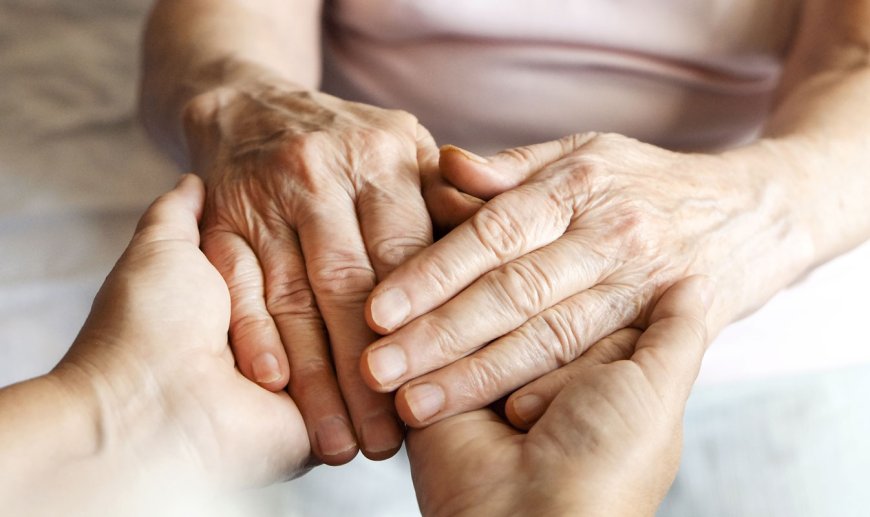Understanding and Preventing Elder Abuse: A Guide for Caregivers

Elder abuse is a serious and growing concern globally, affecting millions of older adults each year. As people age, they may become more vulnerable to various forms of abuse, including physical, emotional, financial, and neglect. Caregivers, especially those involved in elderly care Pune, play a crucial role in identifying, preventing, and addressing elder abuse. This comprehensive guide aims to provide caregivers with essential knowledge and practical tips to protect the elderly and ensure their well-being.
Understanding Elder Abuse
Elder abuse can take many forms, and understanding the different types is the first step in preventing it. The main categories of elder abuse include:
1. Physical Abuse
Physical abuse involves the use of force that results in bodily injury, pain, or impairment. This can include hitting, slapping, pushing, or inappropriate use of restraints.
2. Emotional or Psychological Abuse
Emotional abuse includes actions that cause mental anguish, fear, or distress. This can involve verbal assaults, threats, harassment, or isolating the elderly from friends and family.
3. Financial Abuse
Financial abuse involves the illegal or improper use of an elderly person’s funds, property, or assets. This can include stealing money or possessions, coercing the elderly into signing documents, or unauthorized use of credit cards.
4. Neglect
Neglect occurs when a caregiver fails to provide necessary care, resulting in harm or distress. This can include not providing adequate food, medical care, hygiene, or safe living conditions.
5. Sexual Abuse
Sexual abuse involves any non-consensual sexual contact with an elderly person. This can include unwanted touching, assault, or coerced nudity.
6. Self-neglect
Although not inflicted by others, self-neglect involves an elderly person failing to care for themselves, leading to harm or distress. This can include not taking medications, poor hygiene, or unsafe living conditions.
Causes and Risk Factors
Elder abuse can result from a combination of factors, including:
1. Caregiver Stress
Caregivers may become overwhelmed by the demands of caring for an elderly person, leading to frustration and potential abuse.
2. Family Dynamics
Dysfunctional family relationships or a history of violence can contribute to abusive behavior.
3. Dependency
Elderly individuals who are heavily dependent on their caregivers may be more vulnerable to abuse.
4. Social Isolation
Seniors who are isolated from friends and family may be at greater risk of abuse, as there are fewer people to notice and intervene.
5. Cognitive Impairment
Elderly individuals with dementia or other cognitive impairments may be more susceptible to abuse due to their inability to report or recognize it.
Preventing Elder Abuse
Preventing elder abuse requires a proactive and comprehensive approach. Here are some strategies for caregivers, particularly those involved in elderly care in Pune, to protect their elderly loved ones:
1. Education and Training
Caregivers should receive education and training on recognizing and preventing elder abuse. Understanding the signs and knowing how to respond is crucial.
2. Building Trust and Communication
Establishing a trusting and open relationship with the elderly person can encourage them to speak up if they experience abuse. Regularly check in with them and listen to their concerns.
3. Creating a Safe Environment
Ensure the living environment is safe and free from hazards. Address any safety concerns promptly, such as fixing broken furniture or installing grab bars in bathrooms.
4. Providing Respite Care
Caregivers should take regular breaks to avoid burnout. Respite care services can provide temporary relief, allowing caregivers to recharge and reduce stress.
5. Encouraging Social Interaction
Promote social activities and interactions to reduce isolation. Encourage the elderly to participate in community events, senior centers, or social clubs.
6. Financial Safeguards
Protect the elderly person’s finances by setting up direct deposit for pensions or benefits, monitoring bank accounts for unusual activity, and ensuring they understand their financial situation.
7. Monitoring Health and Well-being
Regularly monitor the elderly person’s physical and mental health. Schedule routine medical check-ups and ensure they receive necessary treatments and medications.
8. Reporting Suspected Abuse
If you suspect elder abuse, it is essential to report it immediately. Contact local authorities, adult protective services, or a trusted healthcare provider for assistance.
Legal and Community Resources
In Pune, there are several resources available to assist in preventing and addressing elder abuse:
1. Local Authorities
Local law enforcement agencies can investigate suspected abuse and take appropriate action.
2. Adult Protective Services
Adult protective services can provide support, investigation, and intervention in cases of elder abuse.
3. Healthcare Providers
Doctors, nurses, and other healthcare professionals can help identify signs of abuse and provide necessary medical care.
4. Community Organizations
Various non-governmental organizations (NGOs) and community groups in Pune offer support and resources for elderly care. These organizations can provide information, counseling, and assistance in addressing abuse.
Elder abuse is a grave issue that demands immediate attention and action. Caregivers, particularly those involved in elderly care in Pune, have a crucial role in protecting the elderly from abuse. By understanding the types of abuse, recognizing the signs, and implementing preventive measures, caregivers can ensure the safety and well-being of their elderly loved ones. Through education, vigilance, and compassionate care, we can work together to prevent elder abuse and provide a nurturing environment for our aging population.












